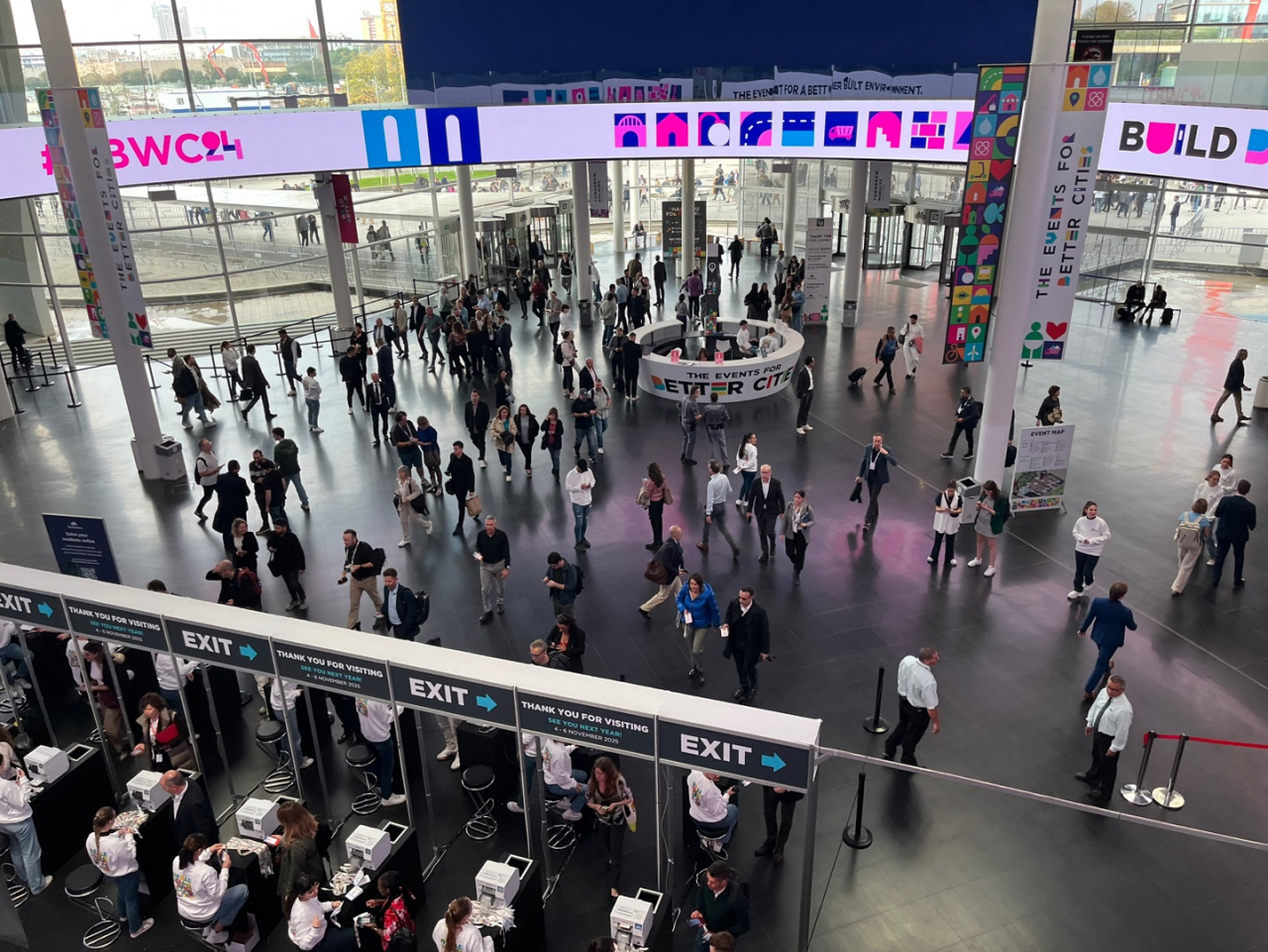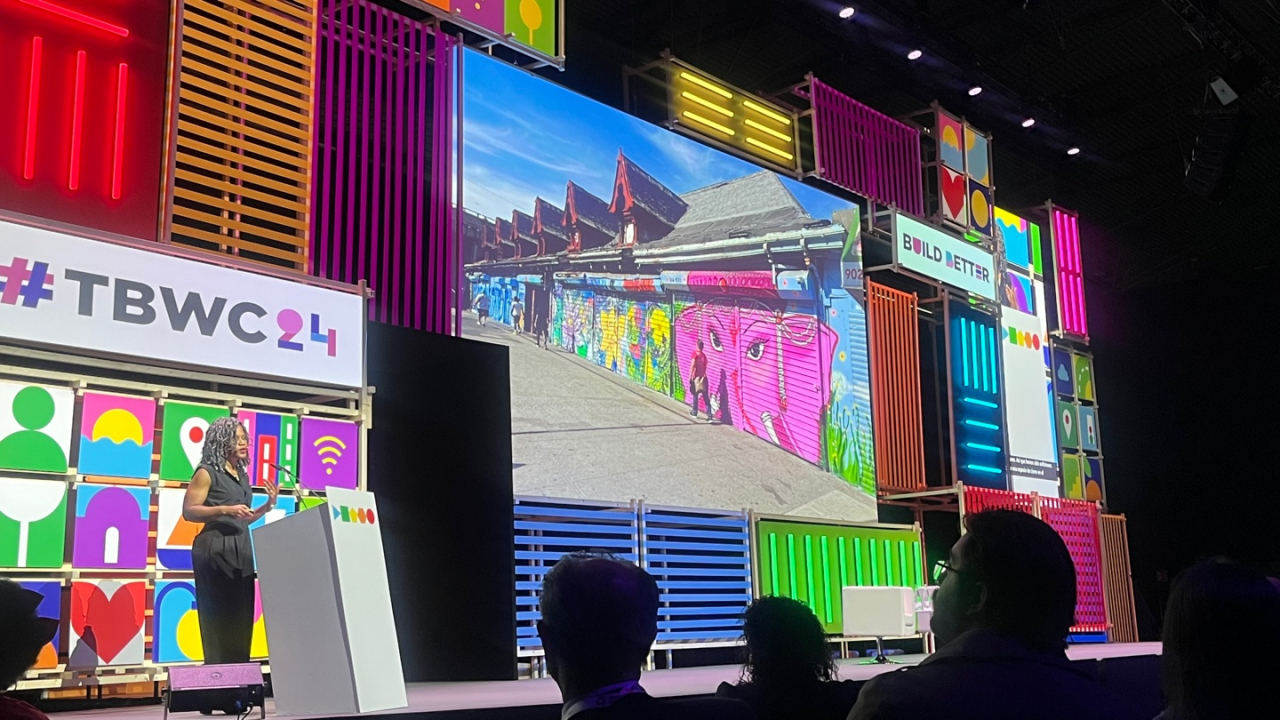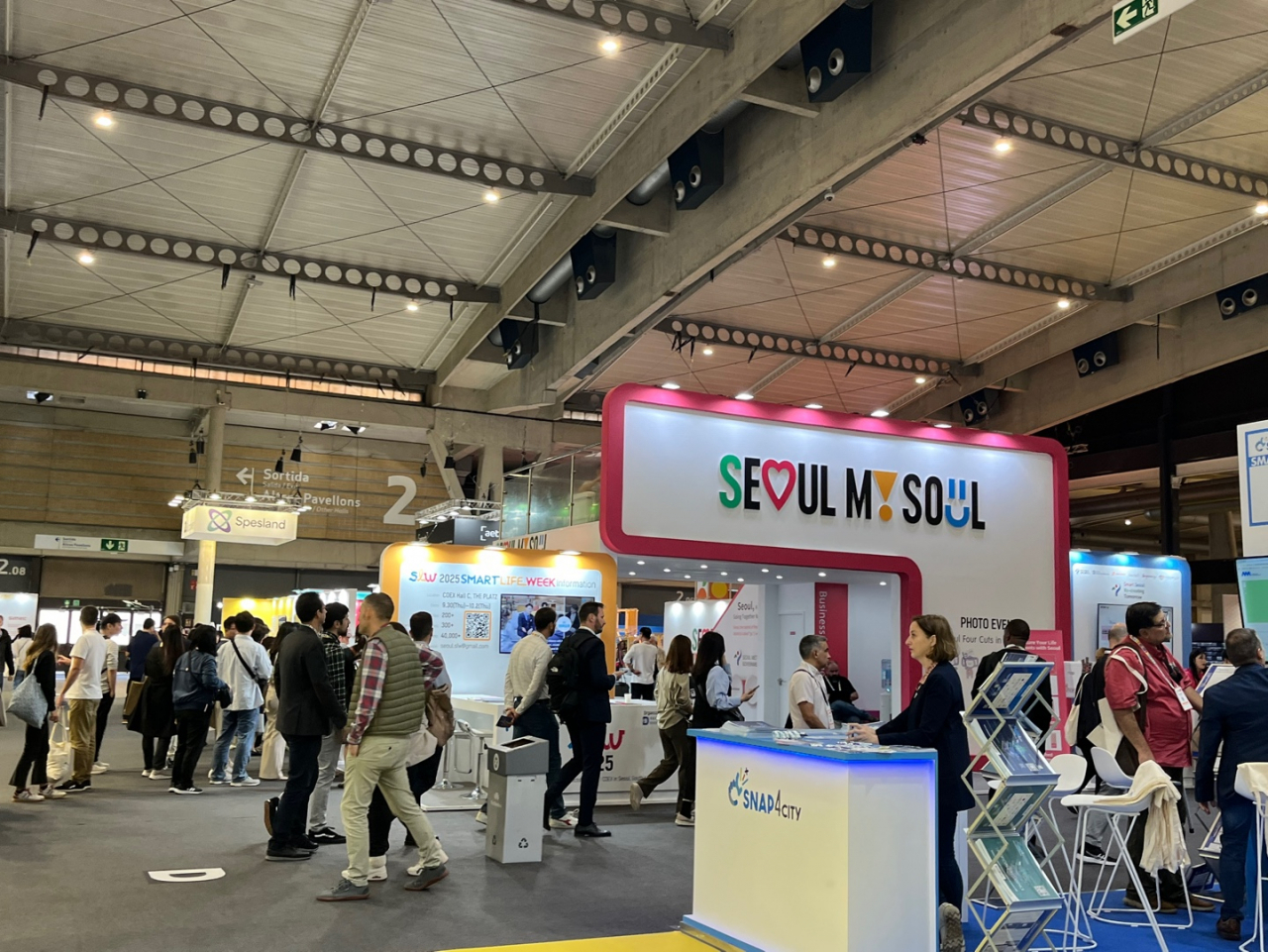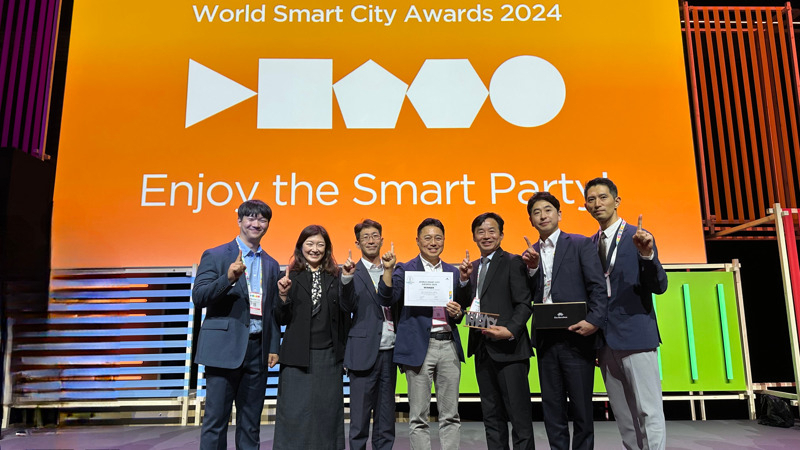
 |
| Attendees gather for the opening remarks at the Smart City Expo World Congress 2024, held on Nov. 5-7, at Fira Barcelona’s Gran Via venue in Barcelona. (Lee Jaeeun / The Korea Herald) |
BARCELONA, Spain — Scholars, industry leaders and government officials gathered in Barcelona earlier this month to pursue a shared vision of sustainable urban development. The annual Smart City Expo World Congress, in its 14th edition, commenced its three-day run on Nov. 5. Hosted by the city of Barcelona and Fira Barcelona, the congress serves as a global hub for urban development that connects people and companies working to build better cities.
Under the theme "Live Better," this year’s expo urgently called for climate resilience and sustainability as cities worldwide face the growing impacts of climate change. Held at Fira Barcelona’s Gran Via venue, the event attracted a record-breaking 25,771 attendees from 850 cities globally, according to the organizers. Featuring 1,150 exhibitors and 632 speakers across 261 sessions, the scale of the expo prompted Fira Barcelona to expand the exhibition space by 30 percent to meet the increased demand, they said.
"If we want to ‘live better,’ we should change our way of life, use technology, and seek innovation through collaboration. The goal of the expo is to address various urban challenges with innovation for better living and sustainability for the future," said Ugo Valenti, director of the expo.
Highlighting the Barcelona Supercomputing Center’s use of simulations and artificial intelligence to forecast and manage natural disasters across Europe, said Laia Bonet, Vice Mayor of Barcelona for urbanism, ecological transition, mobility and housing, "The smartness of a city is not defined by how much data or technology it deploys. It is defined by how it uses data, technology and knowledge to manage and prevent extreme climate events."
 |
| People gather at the entrance of the Smart City Expo World Congress 2024. (Lee Jaeeun / The Korea Herald) |
"Being smart doesn’t only mean predicting and tackling disasters. One of the smartest things we can do is to adapt and mitigate the effects of the climate emergency in the long run," she said, underscoring the need for resilience to be integrated into urban infrastructure.
The catastrophic flooding on Oct. 29 that devastated the province of Valencia serves as a stark reminder of the urgency of these challenges. The flooding claimed at least 222 lives and destroyed infrastructure, homes, businesses and factories.
"The devastating rainfall highlighted the need for cities to prepare for the effects of climate change and be ready to guarantee the well-being of citizens. Technology enables governments and institutions to monitor and set early warning protocols that can mitigate the effects of events such as the storms in Valencia," an official from the Fira Barcelona said.
 |
| Majora Carter, a real estate developer and urban revitalization strategist from the South Bronx, delivers a speech on Nov. 5 at the Smart City Expo World Congress. (Lee Jaeeun / The Korea Herald) |
Building inclusive communities
Majora Carter, a real estate developer and urban revitalization strategist from the South Bronx, delivered a speech at the expo focusing on the concept of "low-status communities." Carter highlighted the systemic challenges these communities face, such as poor public services and limited economic opportunities, which are deeply rooted in historical inequalities. These include practices like redlining -- which in the United States concentrated people of color in neighborhoods deprived of investment and prevented them from accessing loans and buying property -- and discriminatory zoning laws that have segregated and marginalized these areas for decades in New York State.
Carter criticized the prevailing notion that success for talented individuals in these communities is measured by how far they can move away to achieve better living conditions. She argued that talent retention is crucial for reversing economic stagnation and fostering community growth. For instance, she transformed a neglected area along the Bronx River into an award-winning park, providing green spaces where residents can connect with nature and each other. Carter also developed job training programs for people facing employment barriers, linking them to the green economy and providing new opportunities within their communities.
Carter stressed her vision for equitable urban development, saying, "Nobody should have to move out of their neighborhood to live in a better one."
 |
| Seoul City opens a pavilion at the Smart City Expo World Congress, held on Nov. 5-7, at Fira Barcelona’s Gran Via venue in Barcelona. (Lee Jaeeun / The Korea Herald) |
Adding to this global conversation, South Korea made a notable impression at the expo with its active participation. Notably, the "Korea Pavilion" featured contributions from a range of institutions, including Busan City, Pohang City, Korea Land & Housing Corporation, Korea Water Resources Corporation, and Korea Hydro and Nuclear Power. Additionally, the Seoul Metropolitan Government, in collaboration with its districtsof Dongdaemun, Gangnam, and Seocho, partnered with 15 AI and big data companies to present the Seoul Pavilion. Other significant participants included the Gyeonggi Housing and Urban Development Corporation and Seongnam City, all showcasing their advancements and initiatives in urban development.
One standout initiative was Seocho-gu's "Smart Inclusion Model," particularly highlighted through its "Seoripul Forest Imagination School." This initiative is pioneering access to experiences in nature for people with disabilities, utilizing digital augmented reality content. For the first time in Korea, visitors can walk through a barrier-free forest path and engage with 102 types of AR content across nine themed zones, providing a vivid and interactive experience of local flora and fauna. This project not only enhances cultural and leisure opportunities for disabled individuals but also exemplifies the inclusive approach to urban technology that creates environments where everyone can thrive.
"This initiative aligns perfectly with the vision of making cities equitable, using technology to ensure inclusivity and accessibility for all residents. The integration of innovative solutions like the Seoripul Forest Imagination School demonstrates a commitment to building communities where residents, regardless of their physical abilities, have equal opportunities to engage with and enjoy their local environments," said an official from the Seocho-gu district office. She added that government officials from various European countries attended the exhibition to learn from this case.
At the expo, some Korean cities and companies were recognized for their innovative contributions to urban development, receiving prestigious awards that highlight their advances in smart city solutions.
Seongnam was notably shortlisted as a finalist in the Innovation category of the World Smart City Awards, a first for any Korean local government. Its "Innovation for Hope" project focuses on tackling regional inequalities and intergenerational conflicts that have arisen from fast-paced urban development.
The Korea Land & Housing Corporation won the Living & Inclusion Award of the World Smart City Awards. COMPAS, the award-winning platform, utilizes citizen participation and data analysis to tackle urban challenges through a crowdsourcing approach. By engaging citizens in developing algorithms and exploring solutions to local issues, the platform aims to enhance urban sustainability and residents' quality of life.
 |
| Representatives from the Korea Land & Housing Corporation pose after winning the Living & Inclusion Award at the World Smart City Awards on Nov. 6, recognizing their COMPAS platform for enhancing urban sustainability and residents' quality of life. (The Korea Land & Housing Corporation) |
Korea Herald correspondent









